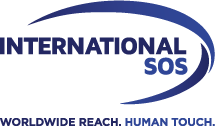International SOS shares advice for safe and healthy Hajj travel
Dubai
International SOS offers health and wellness advice to support the estimated three million Muslims arriving in Mecca and Medina for the Hajj. This year the Hajj occurs on 13-18 of October.
There are a number of health risks that may be encountered during mass gatherings, including respiratory infections and diarrheal illnesses, usually related to contaminated food and/or water.
The Middle East respiratory syndrome coronavirus (MERS-CoV) has caused over 100 cases and 45 deaths in Saudi Arabia. Many of those infected have had underlying chronic health conditions. Because of this, the Saudi Ministry of Health has recommended the following groups to postpone their Hajj journey this year:
- Travellers over 65 years old
- Pregnant women
- Children under 12 years old
- People with chronic medical conditions (such as cancer, diabetes, heart disease, immune deficiency, kidney disease and the terminally ill)
Dr. Issam Badaoui, Medical Director at International SOS, provides the following five simple preventative measures to help maintain the health of pilgrims.
1. Comply with mandatory vaccination requirements: The Saudi Ministry of Hajj has made several vaccinations mandatory for visitors arriving for Hajj.
- All visitors must have proof of a quadrivalent meningitis vaccination given at least 10 days -- and less than three years -- before arrival
- Visitors from countries determined by the WHO to have a risk of yellow fever transmission must have proof of yellow fever vaccination
- Proof of polio vaccination must be shown by travellers over the age of 15 years arriving from certain countries. All children under 15 years will be given oral polio vaccine on arrival in Saudi
Vaccination against hepatitis A and B, typhoid and influenza is recommended. Make sure that all routine vaccinations are up to date, including measles-mumps-rubella, diphtheria and pertussis.
2. Avoid MERS-CoV and other infections: To help prevent MERS-CoV and other respiratory infections, maintain high levels of personal hygiene. Wash your hands frequently with soap and water. Avoid touching your face. Keep some distance from people who are coughing, sneezing or appear to be sick. Avoid unnecessary direct contact with live animals. Wearing face masks in crowded places is recommended. If you are sick, cover your mouth with a tissue when you cough or sneeze and dispose of the tissue properly. Avoid contact with other people so you don’t infect them.
To prevent skin infections, don’t share razors and preferably use single-use razors. Only use registered barbers at officially designated centres where you should insist on new shaving blades.
Choose safe water and food and use repellent to prevent mosquito bites.
3. Keep hydrated to avoid heat stroke: Minimise time spent in the sun especially when it’s strongest--from 10 am to 4 pm. Drink plenty of fluids, protect the face and eyes with a hat and sunglasses, and wear sunscreen with a SPF of 15 or higher. If you feel dizzy or weak, immediately rest in a cool shaded area and drink extra fluids. If the symptoms continue, seek medical attention.
4. Practical issues: Arrival at Jeddah International Airport can be crowded. It may take several hours to go through customs and immigration, and several more hours to be transported to the reception centre. As with any trip, carry a photocopy of your passport and leave an additional photocopy with a trusted person in your home country. This is especially important during Hajj, as the Pilgrim Guides Association collects and holds pilgrims' passports. Accommodation availability is very low, so make bookings well in advance and reconfirm them before travel.
5. Stay vigilant and be aware of your surroundings: Saudi Arabia is a relatively safe country, however travellers should be aware of their surroundings and belongings. It is best to follow local guidelines and pilgrimage routes as indicated as part of local crowd management efforts.
- Ends -
Notes to Editors
About the International SOS Group of Companies The International SOS Group of Companies is in the business of saving lives, protecting your global workforce from health and security threats. Wherever you are, we deliver customised health, security risk management and wellbeing solutions to fuel your growth and productivity. In the event of extreme weather, an epidemic or a security incident, we provide an immediate response providing peace of mind. Our innovative technology and medical and security expertise focus on prevention, offering real-time, actionable insights and on-the-ground quality delivery. We help protect your people, your organisation's reputation, as well as support your compliance reporting needs. By partnering with us, organisations can fulfil their Duty of Care responsibilities, while empowering business resilience, continuity and sustainability. Founded in 1985, the International SOS Group, headquartered in London & Singapore, is trusted by 12,000 organisations, including the majority of the Fortune 500, as well as mid-size enterprises, governments, educational institutions and NGOs. 12,000 multicultural medical, security and logistics experts stand with you to provide support & assistance from over 1,000 locations in 90 countries, 24/7, 365 days.
To protect your workforce, we are at your fingertips: www.internationalsos.com










